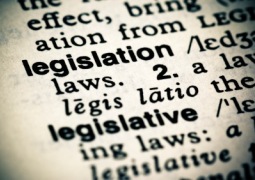
The deepening financial crisis at Eskom has led to the tabling of a special Appropriation Bill before the National Assembly today by the Minister of Finance, Mr Tito Mboweni. This undertaking attests to the fact that Eskom is the pulse of our economy.
It has been alluded to that Eskom is too big to fail and every effort must be made to ensure that this power utility stays afloat, if not, it could drag the economy down to a bottomless pit. In his opening remarks, Mr Mboweni alluded to this in no uncertain terms. “Eskom presents the biggest risk of the fiscal framework because of its financial problems and negative impact on the economy.”
Mr Mboweni told Members of the National Assembly that given Eskom’s strategic position in the South African economy, the government is urgently working on stabilising the utility, while developing a broad strategy for its future.
The current financial problems faced by the utility have exposed it to high levels of liquidity and balance sheet risks. “Without changes to Eskom’s business model and financial assistance being provided by the government, the company will be unable to meet its financial obligations through the 2019/20 financial year budget allocation.”
He also said: “In effect, this special Bill seeks to grant Eskom financial assistance outside of the above-mentioned fiscal framework. This seeks the approval for additional financial support for Eskom of an additional R26 billion in the 2019/20 financial year, and R33 billion in the 2020/21 financial year.”
According to Mr Mboweni, apart from the current financial assistance, Eskom’s long-term sustainability hinges on its ability to be self-sufficient. “A team of officials, led by the Directors-General of the National Treasury and Public Enterprises, has considered a number of options as the solution to the company’s debt challenges in order to ensure its sustainability,” said Mr Mboweni.
Coupled with this, Mr Mboweni said the structuring of Eskom operations, an undertaking that will be vested in the Chief Restructuring Officer, will be done in collaboration with rating agencies. “The Chief Restructuring Officer, who will be appointed shortly, will be mandated to test these options with the rating agencies to establish what impact each will have on the fiscus, and recommend the appropriate one for implementation,” said Mr Mboweni.
He said the restructuring will be divided into three respective components of Generation, Transmission and Distribution. This is meant to “allow strong parts of the business to raise funding more cheaply. To create higher transparency across the value chain and reduce opportunities for fraud, corruption and rent-seeking. To create clear performance incentives in each business and to reduce systemic risk South Africa faces by having one very large entity”.
While working on the long-term restructuring of Eskom, if there is no intervention now, that could have an adverse effect on government and the banks, he pointed out. “Failure to strengthen Eskom’s balance sheet urgently while the government is working on long-term sustainable solutions, may likely have a negative systemic impact as Eskom is the largest non-bank corporate debt issuer in South Africa, and any default will result in a crisis for the government and to some South African banks, given that Eskom is the largest exposure to some banks and the government.”
He concluded that the government must act boldly and precisely to save Eskom from sinking our economy, for the implications of that are too huge to bear. “We are tabling this special Bill to ensure security of electricity supply beyond the medium- term, with significant consequences for the economy. The frequency of the power shortages has risen in recent years, and government needs to act boldly and decisively. We are therefore committed to a significant reform agenda for the entity.”
By Abel Mputing
23 July 2019

